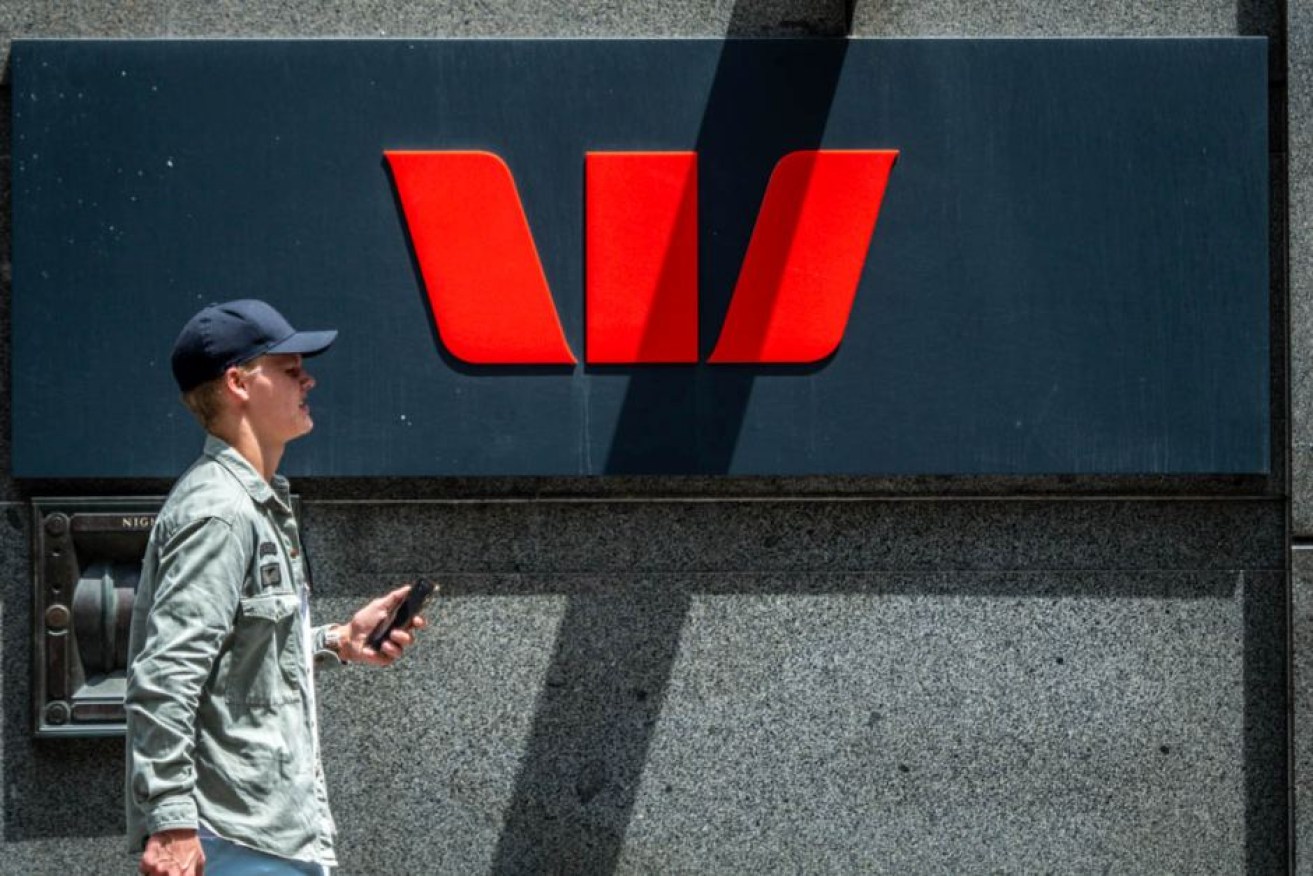Banks are wasting millions on largely ineffective anti-laundering operations


We're living in a post-Westpac world. This is our new reality, Michael Pascoe writes. Photo: ABC
While there’s a national competition to be the most outraged over the Westpac foreign transactions scandal and corporate heads roll and a billion-dollar fine is speculated upon, the reality is that our banks are wasting millions of dollars trying to meet their anti-money laundering responsibilities.
Westpac’s costly failure means many millions more will be wasted – and still only a small fraction of criminal transactions will be noticed.
Westpac’s “23 million breaches” makes for a great headline, but nearly all those breaches add up to nothing – people receiving pension payments from foreign governments, migrant workers sending money home to help support their families.
If Westpac had been on top of its systems, all but a relative handful would have washed through AUSTRAC like the many, many million more international transactions.
Yes, among the millions were 12 individuals AUSTRAC has identified as making transfers that may have been related to child exploitation, including a couple that looked highly probable. And that is terrible. It’s the bit that has triggered outrage.
But it also has eclipsed consideration of the broader problems, ambitions and opportunities of our anti-money laundering (AML) legislation.
A little perspective: While Westpac was being perp-walked, AUSTRAC’s most promising organ, its Fintel Alliance, was reporting “at least three” individuals were detained or arrested here in 2018-19 through its operation on child exploitation material. That’s “at least three” across all our banks – one more than an AUSTRAC media release reported in August.
“Protecting the most vulnerable from child exploitation” was one of the Fintel Alliance operational highlights of the year in its annual report. Most of the impact came from being part of two “major international collaborations” in the UK and South-East Asia that saved or protected 35 victims and saw 73 people detained or arrested – nearly all of them overseas.
(The number of criminal scalps taken is a little confusing. The parent AUSTRAC annual report counts a total of 131 “potential suspected criminals identified by Fintel Alliance intelligence products” while Fintel Alliance only claims to have “contributed to the arrest of 108 persons of interest”, presumably adding 35 from its other activities to the 73 from the child exploitation international effort. On Friday morning I asked AUSTRAC to clarify how many arrests were local and was told I couldn’t have an answer before Tuesday.)
Compared with the “at least three” local arrests from all banks, Westpac’s “potential” dozen suddenly looks a bit like a number maximised for pubic impact – unless there’s a suggestion paedophiles particularly favour Westpac.
Westpac case masks government failure
The reality is that the vast majority of international criminal transfers are made successfully – successfully from the criminals’ point of view, that is.
The Westpac headlines distract from the government’s failure to get serious about the current avenues for major organised crime money laundering.
While our banks are expected to jump through hoops to be sure to identify and report Filipino aged-care workers sending money back to their families, Australian real estate agents and lawyers have no such problem – and that’s where much bigger money plays.
This is not an attempt to diminish Westpac’s failure to realise its attempt to offer cheaper international transfers didn’t tick the AML boxes or to react quickly enough to AUSTRAC red flagging particular types of transfers that might be linked to child exploitation.
But the goal of catching more criminal transfers and preventing more crime requires much more than mega-fining a bank or two. It is actually totally dependent on the willing cooperation of all our banks and foreign transfer operators to do more than tick boxes.
Closer co-operation is needed
This is where the Fintel Alliance is most promising as it has the goal of providing the means for banks, regulators and law enforcement to share information in real time.
For many of their squillions of transactions, banks have up to 90 days to notify AUSTRAC – 90 days is a very long time for information about potential criminal money movements to stay warm.
And one bank’s information in isolation isn’t much chop either.
The criminal class is not universally stupid, especially the most organised and successful members, as well as the most devious scumbags. The bad guys operate multiple accounts at multiple banks – so pooling data becomes crucial.
The Fintel Alliance has only been operating for three years. It will require new legislation to overcome existing restraints on sharing data, but shared data in real time is where the potential lies, albeit much further down the track.
A Royal United Services Institute paper two years ago on information sharing fingered the challenge of handling the global explosion of low-value suspicious transfer reports against the failure of existing systems.
RUSI found fewer than 1 per cent of criminal funds flowing through the international financial system each were captured by law enforcement. Between 80 and 90 per cent of suspicious reporting was of no immediate value to law enforcement investigations.
And yet the private sector – primarily banks – were estimated to have spent $12 billion on anti-money laundering controls in 2017.
Australian banks annually spend millions on their AML systems – and will be spending more post-Westpac – but each bank having its own, separate AML system makes little sense – there’s no competitive advantage in having the best AML or know-your-customer systems.
If they were able to develop and share common systems, AUSTRAC and the enforcement agencies would be better armed.
The state of play today
AUSTRAC’s annual report says it received nearly a quarter of a million suspicious transfer reports (STRs) in 2018-19, nearly double the previous year’s count. AUSTRAC had a total of 351 staff at the end of the financial year (44 of them part-time), an increase of 16 per cent from the previous year. The agency needs all the help it can get.
The reason for that doubling is in the first paragraph of the CEO’s report:
“As reported last year, AUSTRAC led enforcement action resulting in a $700 million penalty against the Commonwealth Bank of Australia – representing the largest civil penalty in Australia’s corporate history. This, combined with the Royal Commission into Misconduct in the Banking, Superannuation and Financial Services Industry, has seen the number of self-disclosed reports by AUSTRAC’s regulated entities soar.”
So AUSTRAC’s biggest catch was the CBA, but what did that $700 million and all those extra STRs yield in terms of criminals caught? The answer is not so obvious.
The AUSTRAC annual report highlights section offers two standouts – a joint agency task force that resulted in 10 arrests on money laundering and drug charges, and data sharing and matching with the Department of Human Services that saved $16.2 million over 1513 cases of welfare fraud.
In the body of the report, it’s recorded that the ATO used “AUSTRAC’s financial intelligence capability” in more than 4500 cases that “contributed to the ATO’s raised revenue of more than $210 million for the financial year”.
“In response to the increasing volume of reports, we are continually looking for new efficiencies and innovations to monitor compliance, identify and act on non-compliance, and generate actionable, meaningful intelligence for our partners and us,” writes CEO Nicole Rose.
The Fintel Alliance annual report says it contributed to “the closure of accounts of over 90 high-risk customers”. That’s across all its areas of interest, from child exploitation to bikie gangs and identity theft.
The Fintel Alliance received an honourable mention in the RUSI report as being the only financial information-sharing partnership setting out to provide actionable, real-time intelligence.
“The information flow is a ‘hub and spoke’ model, whereby Fintel Alliance participants will send and receive information through AUSTRAC… Private-private information sharing is not permitted in the Australian legal framework.”
But that real-time goal, called the “Alerting Project”, is many years away.
Millions more to be wasted
As the AUSTRAC annual report says, the project “will enable the discovery of financial crime risks that only become visible by joining disparate and distributed data sources from multiple reporting entities”.
“The long-term goal is to enable real-time detection and alerting of criminal activities, using a secure system that supports privacy-preserving data matching and machine learning.”
In the meantime, banks will spend a fortune to protect themselves by generating ever-greater numbers of STRs that threaten to swamp AUSTRAC’s present capabilities.
Some good work will be done, some criminal activity will be disrupted and some criminals caught, but mostly it will be business as usual, and money laundering through real estate transactions and lawyers will continue.
It looks like AUSTRAC’s biggest achievement is turning a very fat profit for the federal government through fines on its bank partners – the banks that are collectively investing much more money on AML and are expected to do most of AUSTRAC’s work for it.
The government kicked in $74 million for AUSTRAC last year – not much more than a tenth of the CBA fine it will pocket. If the speculation about what Westpac will cop is true, the government’s return on funds employed will be even greater this year.
Disclosure: The Pascoe family super fund, like nearly all super funds, holds bank shares, including Westpac shares.








